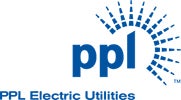Pennsylvania solar panels guide 2023
Updated April 14, 2023As far as solar incentives go, Pennsylvania is lacking quite a bit. With the exception of the waitlisted Philadelphia Solar Rebate program, there are no state, city, or utility-specific rebates offered for residential solar systems. Saving money by going solar in Pennsylvania mainly comes from the combination of the mandatory net metering law and the 30% federal tax credit.
On this page:
Solar power prices, savings and payback in your part of Pennsylvania
The average cost for an installed residential solar system in Pennsylvania is currently $9,988 after claiming the 30% federal solar tax credit. This is $2.38 per watt. However, there is some variance in solar prices in different parts of the state. The graph below shows the average cost of installed solar systems in your part of the state.
Showing data for:
Prices based on a 5.0kW system, after 30% federal tax credit
Net profit (savings less system cost)
$42,425-$51,852
Payback period
5.4-6.6 years
Recommended size for the selected utility bill
5.0kW
Solar panel cost calculator
Cash flow graph based on cash purchase of a 5.0kW system
Are solar panels worth it in Pennsylvania
Solar panels have fallen in price by more than 80% in the last ten years. In 2022 they also remain subsidized by the 30% federal tax credit and the net metering law, making them an excellent investment. They offer a return well above the long term average return from both the share market and also property investment.
Another way to look at this question is the levelized amount you will pay for each kWh of power you will use over the next 25 years with and without solar panels. As you can see below the savings are significant.
Levelized cost of solar energy
?
Levelized cost per kWh is the cost of the solar system divided by the total number of kWh produced by a solar system over it’s lifetime
6¢ /kWh
If you don't get solar
35¢ /kWh
(forecast avg Pennsylvania electric rates over the next 25 years)
PA solar panel cost calculator
Pennsylvania solar incentives & tax credits
Federal solar tax credit
The federal solar tax credit is the most significant incentive to install solar panels for homes and businesses in Pennsylvania. Thanks to the Inflation Reduction Act that went into effect in August 2022, homeowners can now get a tax credit of up to 30% when installing solar panels - a solid increase compared to previous years.
Home and business owners want the largest incentive possible, and it just so happens that this incentive is as high as it can get for the decade!
Net metering
Pennsylvania law requires all electric distribution companies to offer net metering to their customers. If your solar system produces more energy than you use, your utility will pay the full retail rate for all that extra solar energy.
Since Pennsylvania's electricity rates are so high, net metering can save homeowners a pretty penny.
Pennsylvania alternative energy credits
The Alternative Energy Portfolio Standard Act of 2004 mandates that all electric companies and suppliers must obtain 18% of their electricity from clean energy sources by 2021; 0.5% must be derived from solar. At this time, no further updates have been made to this act.
Companies must purchase alternative energy credits (AECs) to meet their quota. One credit is equal to 1 megawatt-hour of renewable energy. As of March 2023, the bid pricing has reached $47 per AEC. These prices are subject to change based on the current market. Pennsylvania homeowners can make back their money with solar by generating these AECs and selling them to the utilities.
Philadelphia Solar Rebate
The Philadelphia Solar Rebate incentive program was introduced in 2019 to encourage homeowners to install photovoltaic systems on their homes. This one-time incentive offers $0.20 per watt for residential projects and $0.10 for commercial projects. Rebates are capped at $100,000 and reserve 10% of the funds for low and moderate-income households.
The program is currently closed to do budget cuts caused by COVID-19. However, they are still accepting applications to place applicants on a waiting list for when funding is restored.
Table 2: Available incentive programs
|
Eligibility: Federal incentive
Type: Personal Tax Credit
|
|
Eligibility: State incentive
Type: SREC Program
|

Best unit price
$320.00 ($0.96 per watt)
Best system price
Installed 5.0kW system
$12,721.85
($2.53 p/w)
LG335N1K-V5 overview
Rated power
335 watts
Efficiency
19.6
Number of Cells
60
Cell type
Monocrystalline/N-type
Manufactured
KR
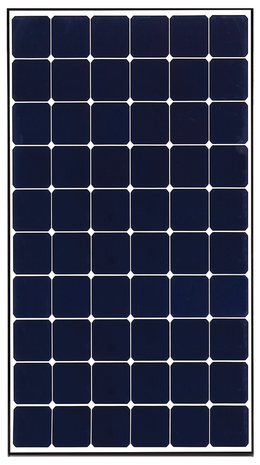
Best unit price
$562.50 ($1.50 per watt)
Best system price
Installed 4.9kW system
$12,120.18
($2.49 p/w)
LG375A1C-V5 overview
Rated power
375 watts
Efficiency
21.7
Number of Cells
60
Cell type
Monocrystalline/N-type
Manufactured
KR
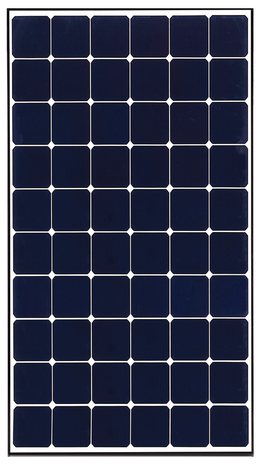
Best unit price
$430.00 ($1.15 per watt)
Best system price
Installed 4.9kW system
$12,919.30
($2.65 p/w)
LG375Q1C-V5 overview
Rated power
375 watts
Efficiency
21.7
Number of Cells
60
Cell type
Monocrystalline/N-type
Manufactured
KR
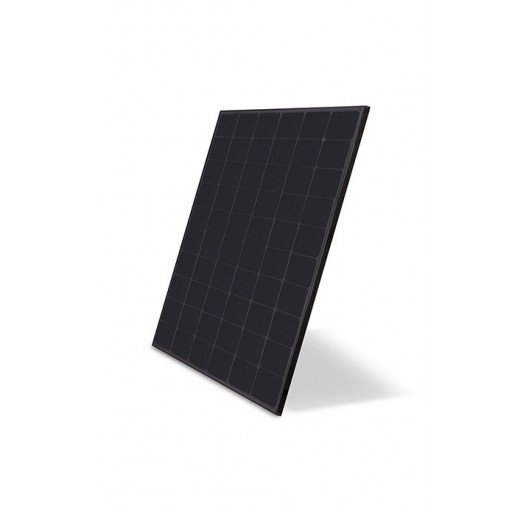
Best unit price
$473.34 ($1.30 per watt)
Best system price
Installed 5.1kW system
$13,231.07
($2.59 p/w)
LG365Q1K-V5 overview
Rated power
365 watts
Efficiency
21.1
Number of Cells
60
Cell type
Monocrystalline/N-type
Manufactured
KR
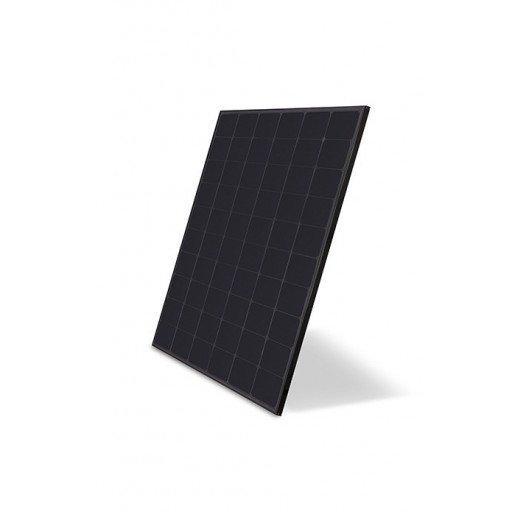
Best unit price
$432.00 ($1.20 per watt)
Best system price
Installed 5.0kW system
$13,276.66
($2.63 p/w)
LG360Q1K-V5 overview
Rated power
360 watts
Efficiency
20.8
Number of Cells
60
Cell type
Monocrystalline/N-type
Manufactured
US
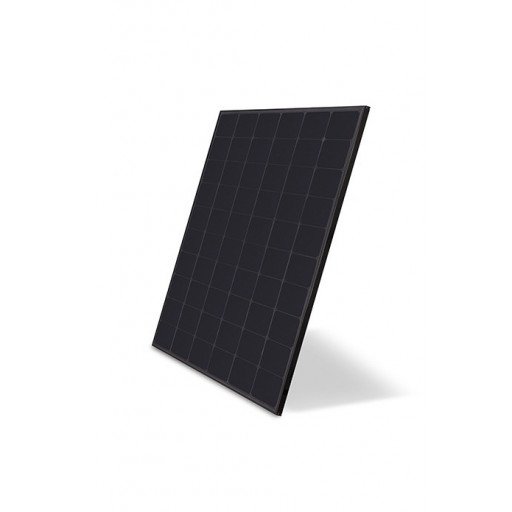
Best unit price
$530.85 ($1.50 per watt)
Best system price
Installed 5.0kW system
$12,386.87
($2.49 p/w)
LG355Q1K-V5 overview
Rated power
355 watts
Efficiency
20.6
Number of Cells
60
Cell type
Monocrystalline/N-type
Manufactured
US
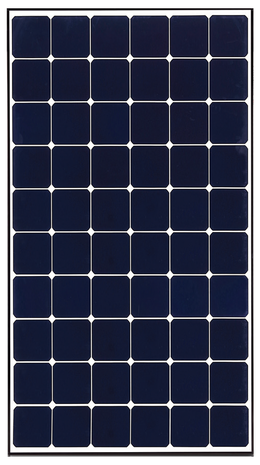
Best unit price
$495.00 ($1.38 per watt)
Best system price
Installed 5.0kW system
$13,091.06
($2.60 p/w)
LG360Q1C-V5 overview
Rated power
360 watts
Efficiency
20.8
Number of Cells
60
Cell type
Monocrystalline/N-type
Manufactured
US
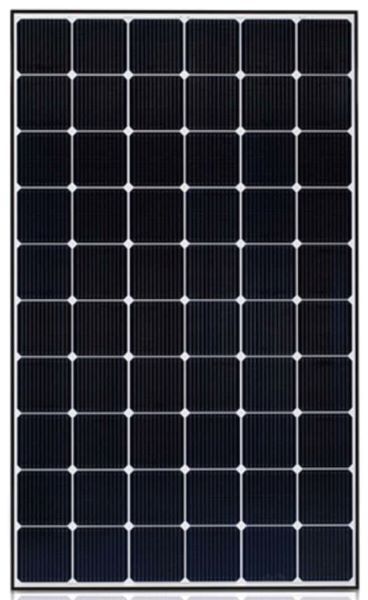
Best unit price
$407.97 ($1.10 per watt)
Best system price
Installed 5.2kW system
$13,159.30
($2.54 p/w)
LG370Q1C-V5 overview
Rated power
370 watts
Efficiency
21.4
Number of Cells
60
Cell type
Monocrystalline/N-type
Manufactured
US
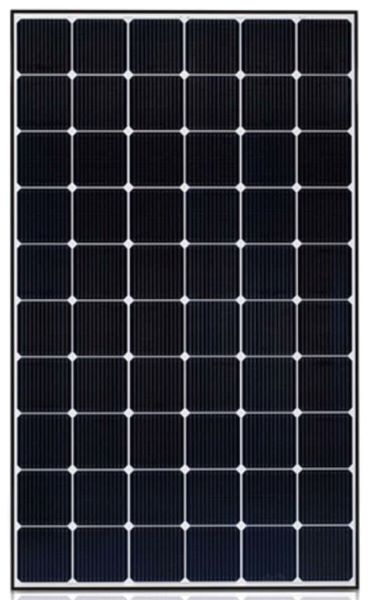
Best unit price
$323.39 ($0.97 per watt)
Best system price
Installed 5.0kW system
$12,691.01
($2.53 p/w)
LG335N1C-V5 overview
Rated power
335 watts
Efficiency
19.6
Number of Cells
60
Cell type
Monocrystalline/N-type
Manufactured
US
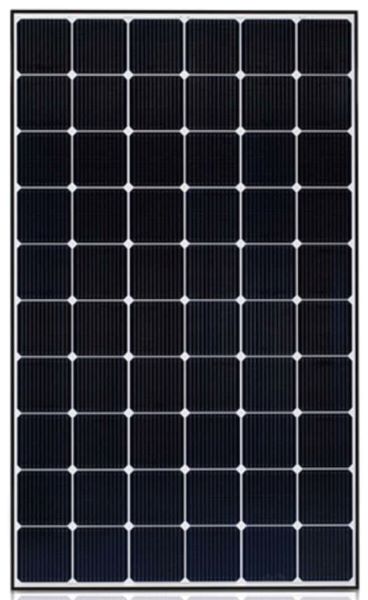
Best unit price
$338.19 ($0.99 per watt)
Best system price
Installed 5.1kW system
$0.00
($0.00 p/w)
LG340N1C-V5 overview
Rated power
340 watts
Efficiency
19.8
Number of Cells
60
Cell type
Monocrystalline/N-type
Manufactured
US
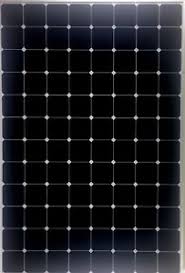
Best unit price
$600.00 ($1.83 per watt)
Best system price
Installed 4.9kW system
$12,808.41
($2.61 p/w)
SPR-E20-327-COM overview
Rated power
327 watts
Efficiency
20.4
Number of Cells
96
Cell type
Monocrystalline
Manufactured
US
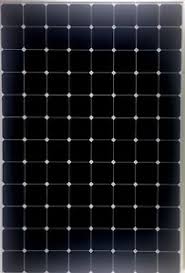
Best unit price
$800.00 ($2.22 per watt)
Best system price
Installed 5.0kW system
$13,201.67
($2.62 p/w)
SPR-X22-360 overview
Rated power
360 watts
Efficiency
22.2
Number of Cells
96
Cell type
Monocrystalline
Manufactured
US
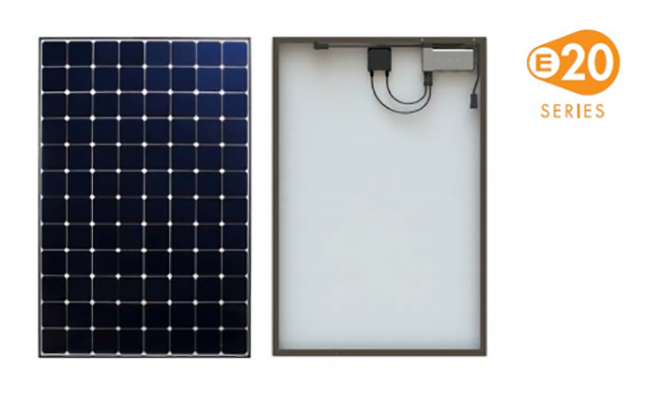
Best unit price
$620.00 ($1.90 per watt)
Best system price
Installed 4.9kW system
$13,703.10
($2.79 p/w)
SPR-E20-327-D-AC overview
Rated power
327 watts
Efficiency
20.4
Number of Cells
96
Cell type
Monocrystalline
Manufactured
US
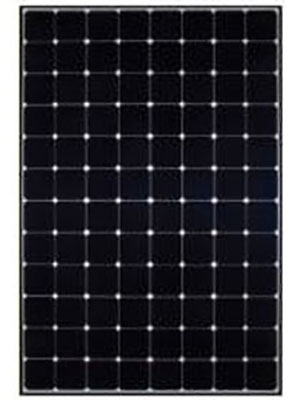
Best unit price
$620.00 ($1.90 per watt)
Best system price
Installed 4.9kW system
$13,610.59
($2.77 p/w)
SPR-E20-327 overview
Rated power
327 watts
Efficiency
20.4
Number of Cells
96
Cell type
Monocrystalline
Manufactured
US
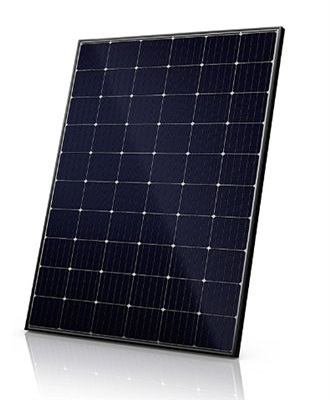
Best unit price
$181.00 ($0.60 per watt)
Best system price
Installed 5.1kW system
$11,003.04
($2.16 p/w)
CS6K-300MS overview
Rated power
300 watts
Efficiency
18.33
Number of Cells
60
Cell type
Monocrystalline
Manufactured
CA
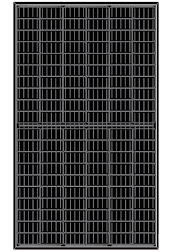
Best unit price
$196.11 ($0.65 per watt)
Best system price
Installed 5.1kW system
$9,948.02
($1.95 p/w)
LR6-60-HPB-300M overview
Rated power
300 watts
Efficiency
18.1
Number of Cells
120
Cell type
Mono PERC
Manufactured
CN
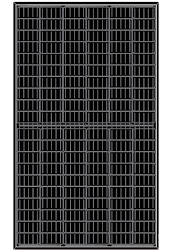
Best unit price
$172.00 ($0.56 per watt)
Best system price
Installed 4.9kW system
$9,568.53
($1.96 p/w)
LR6-60-HPB-305M overview
Rated power
305 watts
Efficiency
18.4
Number of Cells
120
Cell type
Mono PERC
Manufactured
CN
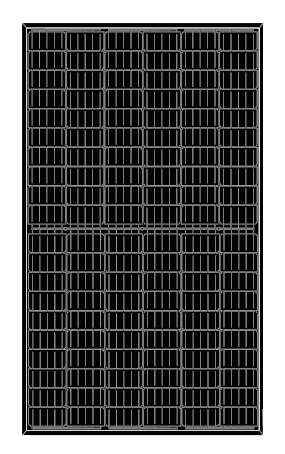
Best unit price
$165.00 ($0.53 per watt)
Best system price
Installed 5.0kW system
$9,761.72
($1.97 p/w)
LR6-60-HPB-310M overview
Rated power
310 watts
Efficiency
18.7
Number of Cells
120
Cell type
Mono PERC
Manufactured
CN
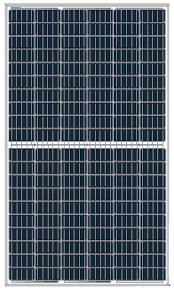
Best unit price
$228.00 ($0.60 per watt)
Best system price
Installed 4.9kW system
$9,579.65
($1.94 p/w)
LR4-60HPH-380M overview
Rated power
380 watts
Efficiency
20.9
Number of Cells
120
Cell type
Mono PERC
Manufactured
CN
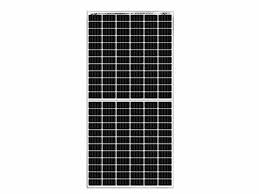
Best unit price
$234.00 ($0.60 per watt)
Best system price
Installed 5.1kW system
$10,126.74
($2.00 p/w)
LR6-72HBD-390M overview
Rated power
390 watts
Efficiency
19.4
Number of Cells
144
Cell type
Mono PERC
Manufactured
CN
Average cost of solar panel installation in Pennsylvania by system size
System size* |
Cash purchase(After tax credit) |
Financed purchase(After tax credit) |
|---|---|---|
| 4kW | $10,376 | $11,102 |
| 5kW | $12,430 | $13,300 |
| 6kW | $14,268 | $15,267 |
| 7kW | $16,457 | $17,609 |
| 8kW | $18,960 | $20,287 |
| 9kW | $20,754 | $22,207 |
| 10kW | $22,790 | $24,385 |
Best solar companies in the main cities of Pennsylvania
Home solar basics
Is it better to lease or buy solar panels in Pennsylvania
You will save most money by buying your solar system rather than leasing it. Read more about the pros and cons of leasing vs buying solar.
How long do solar panels last?
Minimum of 25 years but generally 30 or more
How do solar panels work on a home?
Solar panels power your house when they can but your home uses the utility company for power at other times. In 2023 "solar systems with battery storage" are becoming more popular. These are known as hybrid systems.
How do solar panels work?
Grid-tied solar system
A grid-tied system is the most common type of solar system. It has no solar battery for backup power and utilizes net metering to maximize savings. Solar panels are mounted on your roof then wired together, and the power generated flows into an inverter where direct current (DC) electricity is converted into alternating current (AC) electricity. This electricity is either used by your home or is exported to the utility grid.
Hybrid solar system
In hybrid solar systems, rooftop solar panels are connected to both a solar battery and the electric grid. The solar electricity generated by your panels that your home does not use is stored in the battery instead of being sent to the grid, which reduces your reliance on the utility while also providing backup power when needed. Battery storage is still expensive but you may be able to reduce costs by using state incentives.
Off-grid solar system
Off-grid solar systems are not connected to the grid at all, so all of your energy needs must be met by the sun. There is no utility to fall back on. The solar installation needs to power your home not only during the day, but after dark as well, so many solar panels and a large battery system are required. These systems are often expensive and don’t make sense for homes that have access to the grid.
Read more about types of home solar systems.
Do solar panels require regular maintenance?
No, but cleaning them can improve power generation if they are dirty.
Will residential solar power system cost fall in Pennsylvania in 2023?
Given this environment, and the effect of import tariffs placed on solar panels by the Trump administration during 2018, it is hard to see that solar power system prices in Pennsylvania will fall during 2023.
How much electricity do solar panel systems generate in Pennsylvania?
Depending on the location, solar panels will generate different amounts of electricity.
A solar system that is installed on a south-facing 27-degree pitch roof Pennsylvania will generate 1,254kWh of peak DC (direct current) capacity per year per 1kW in Pennsylvania.
Enter your details into the solar panel calculator to see how your location, roof tilt, and roof direction impacts solar panel production.
What are the pros and cons of installing solar panels in Pennsylvania?
The main advantage of installing solar panels is that Pennsylvania's power prices are above the national average, so the return on investment of solar panels is among the best in the U.S.
In Pennsylvania, the law mandates net metering, which requires retail electricity sellers to provide their customers with a credit equal to the retail electricity rate for the excess generation their systems create. In addition, the federal solar tax credit has reached 30%, which is higher compared to recent years.
The biggest disadvantage of installing solar panels in Pennsylvania is the state’s lack of state and utility solar incentives and rebates. Also, the state does not require a property tax or sales tax exemption on solar energy equipment as many other states do. Pennsylvania also receives less sunshine than some other states, like Arizona or New Mexico. This means a solar system installed here will produce a little less than in sunnier states.
Enter your details to calculate the cost and savings you are likely to get from installing solar panels for your home.
What you can learn from our state solar panel calculator
This solar calculator requires you to input your address, utility company, your average monthly power spend - it tells you:
- What size solar system do you need?
- Answers the question of How many solar panels do I need?
- How many square feet of roof space you need for solar panels
- Solar electricity production in annual kWh (kilowatt-hours) you can expect from your solar system in Pennsylvania
- The value of solar tax credits and other incentives you are entitled to based on the estimated size of system you need, your location and your utility provider.
- Likely cost based on an average of prices charged for solar systems of that size in the last year in Pennsylvania or
- The likely payback period on your solar panels and your investment return.
- Your total lifetime solar savings based on each of the major solar finance options, a cash purchase, a cash purchase funded with a HELOC (home equity line of credit) and a zero-down PPA or third party lease product.
If you want to see all of the above but also see live pricing, the three best solar deals available in your city and get binding quotes from each of these solar companies then use this Pennsylvania solar panels calculator. This calculator requires you to also input your name and contact details because most of our 200+ installer partners will only authorize the sharing of their live solar pricing where we have validated that you are a real homeowner with a home in their service area. We respect the privacy of your data and only share your contact details with the solar companies you ask us to get binding quotes from.
Note: Please keep in mind that the best source of up-to-date information on incentives are the solar installers who specialize in your area.



